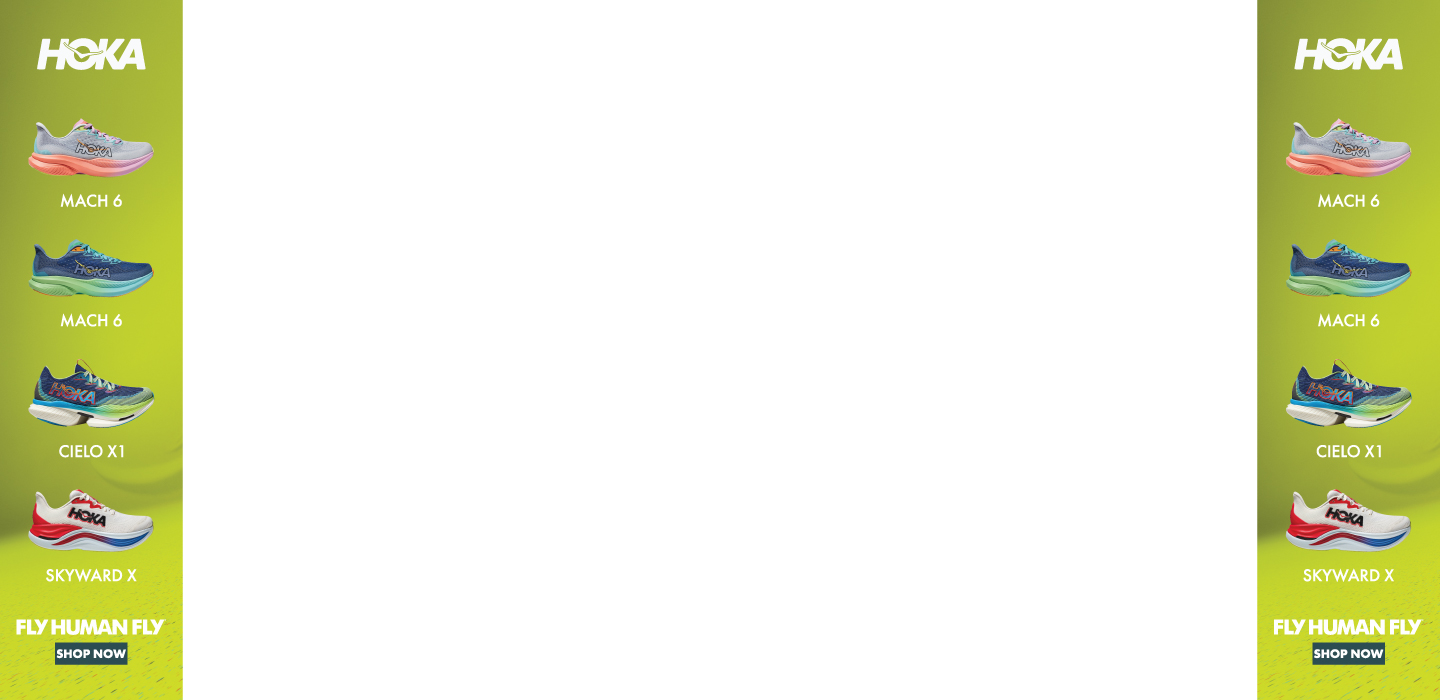When SA Was On Top Of The World – And Where We Are Now
Are SA's glory running days behind us... or still to come?
When South Africa was finally readmitted to international athletics in 1992, after 32 years of isolation, the world was ready to welcome our athletes with open arms; and their achievements thereafter were so powerful, John Brant of Runner’s World in the US dubbed 1992 the “year of the South African”.
There were many marathon wins and podiums, but for the purpose of this story, I’ll focus on the bigger international marathons between 1992 and 1996.
David Tsebe and Willie Mtolo got the ball rolling in ’92, winning the Berlin and New York marathons respectively, while Colleen de Reuck finished a respectable ninth at the Barcelona Olympic Marathon. In the same year, the late Michael Scout also won, in Japan, and Joseph Skosana was victorious in Taipei. Amazingly, Tsebe topped the world rankings in 1992, with his 2:08:07 victory.
In 1993 another SA running icon of the ’80s, Xolile Yawa, won the Berlin Marathon, while Tsebe had to settle for third. Gert Thys showed his mettle finishing second in Fukuoka, and Mark Plaatjies (running for the USA) won the 1993 World Championships in Stuttgart.
In 1994, it was Elana Meyer who excelled in her marathon debut, finishing third in the Boston Marathon in 2:25:15. Meyer returned to Boston in 1995 and finished second, while Yawa finished fourth in the London Marathon and sixth in Berlin.
And all that was just the calm before the storm…
1996 will forever be the biggest year of all for SA marathoning. Who will ever forget the diminutive Josiah Thugwane, stunning the world to win the gold medal at the Atlanta Olympics? I can’t deny, I shed a tear watching his courageous three-second victory over Lee Bong Ju of Korea. As the late Madiba said, Thugwane “reinforced our pride and confidence as a nation”.
1996 will forever be the biggest year of all for SA marathoning. Who will ever forget the diminutive Josiah Thugwane, stunning the world to win the gold medal at the Atlanta Olympics?
In the same year, Colleen de Reuck won the Berlin Marathon, in a new national record – 2:26:35 – and Gert Thys was victorious in Beppu, in Japan. A glorious 12 months for SA.
While there have been some great victories since 1996 – from Hendrik Ramaala (New York), to Gert Thys (Tokyo; at the time, his 2:06:33 was the second-fastest in history), Josiah Thugwane (Fukuoka), Stephen Mokoka (Shanghai) and Lusapho April (Hanover), among others – it’s true we’ve gone off the boil somewhat. Though recently, Mokoka finished fifth at the 2019 world championships, and Gerda Steyn broke De Reuck’s 25-year national marathon record in April, clocking 2:25:28 in Siena.
Why are we falling behind in world marathoning?
There are many reasons; but I would rather focus on the positives and the possibilities than the negatives. While we pin our future hopes on the likes of Mokoka and Steyn, we also need the current crop of enthusiastic coaches and small pockets of excellence around the country to start rising to the occasion.
Our young road runners and potential marathon runners need competitive races, like the national championships of a couple of decades ago – especially over 10km. I distinctly recall the SA 10km championships in 2000, witnessing two runners sprinting for ninth and 10th in a speedy 28:24.
Michael Meyer introduced the FNB series, which was exactly what the country’s runners needed, just as the Spar ladies’ races have provided opportunities for such talents as Rene Kalmer, Irvette van Zyl, Mapaseka Makhanya, Glenrose Xaba and Steyn.
Michael Mbambani and EP Athletics have been putting on the Legacy Series for a few years now; and this series of road races, with substantial prize money, has attracted many SA road runners seeking the opportunity to run fast times.
Another factor is that training has progressed internationally. Just look at the performances over the past decade: a lot of this has to do with coaching. Wouldn’t it be great if Athletics South Africa could bring in an international coach – or consult one virtually, as that’s a common option now? Italian coach Renato Canova (now 75) springs to mind. Imagine our up-and-coming coaches learning from the likes of Canova, who is more than willing to share his training philosophies!
Then we need to understand the advances made in sports science. As an example: in the past, if we knew we needed to replenish kilojoules in a marathon, we focused almost solely on trying to source them from sports drinks (and further back, through carbo loading). More and more often now, we see coaches able to use testing and training to improve a runner’s aerobic ability – which means the athlete may not need to replenish as much as before, because he or she is trained to use less glycogen.
We will explore this topic further in future issues.
Alec Riddle is a former elite ultra runner, well-known race commentator and athletics expert.
READ MORE ON: Gerda Steyn olympics south-africa



